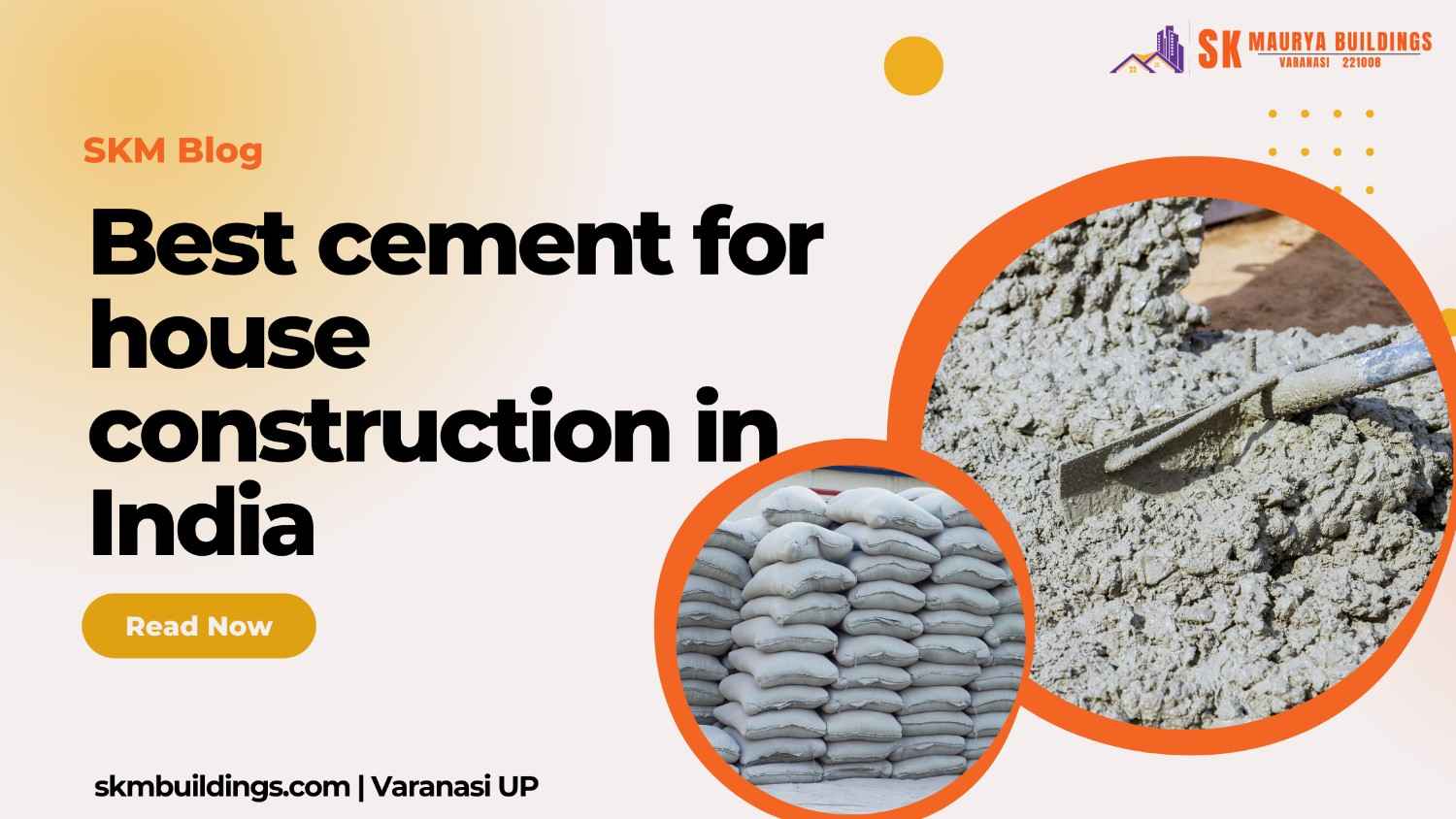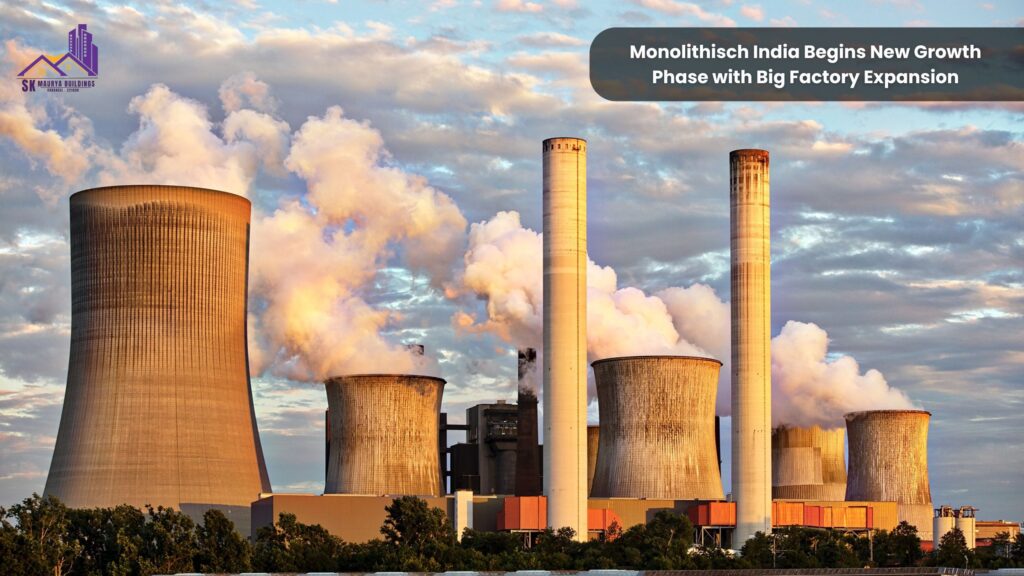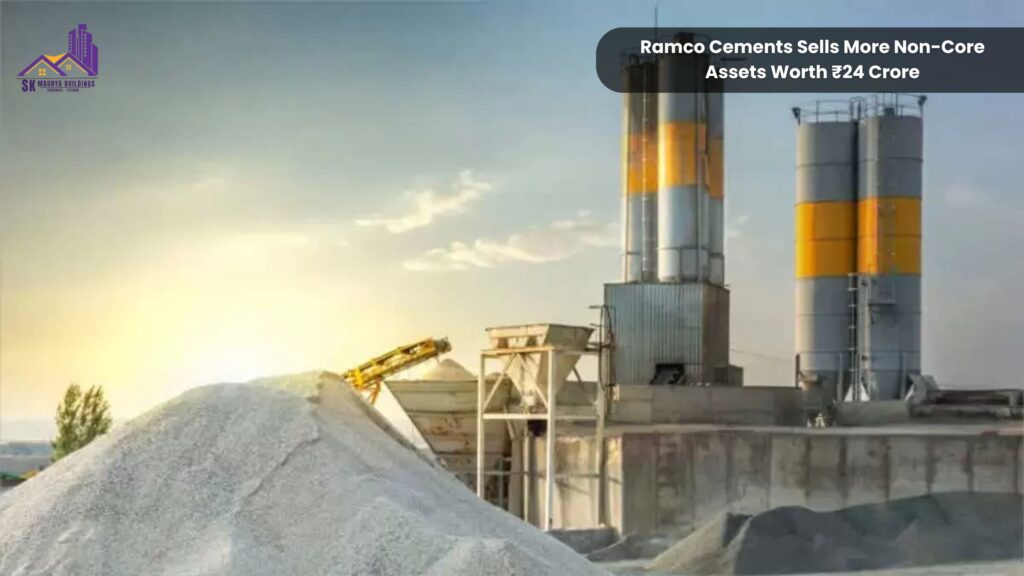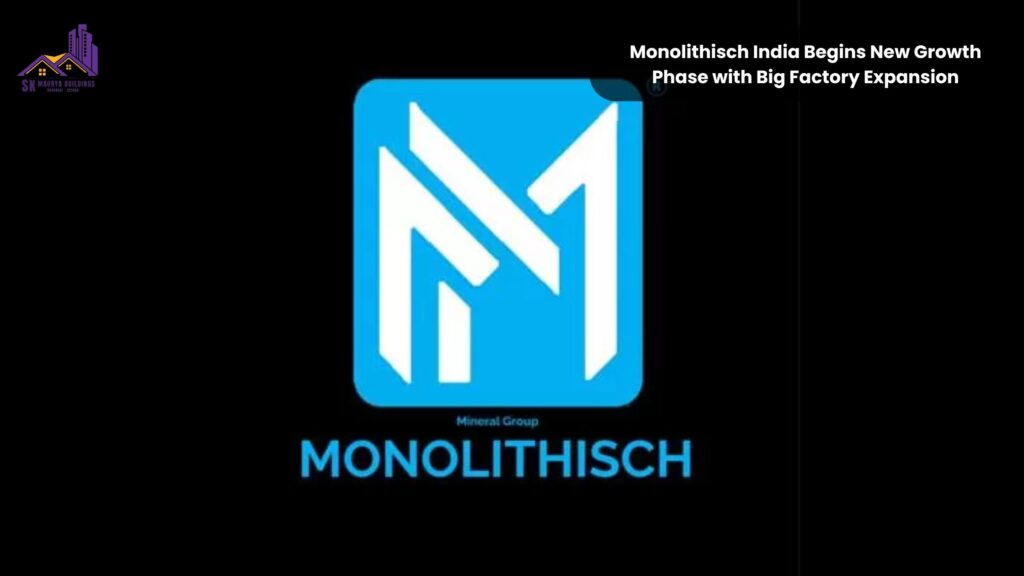Building a house is a lifetime investment and choosing the best cement for house construction in India is very important to get strength and durability. With so many cement brands available, choosing the right one can be confusing. Home owners worry about cracks, water damage or weak structures due to low quality cement. But don’t worry! This guide will help you understand the different types of cement, their uses and how to choose the right one for your dream home.
From Ordinary Portland Cement (OPC) to Portland Pozzolana Cement (PPC) to composite cements, we will cover their benefits, drawbacks and real life applications. Whether you are building a house from scratch or renovating an old one, the right cement ensures safety, longevity and cost effectiveness. Keep reading to make an informed decision and avoid costly mistakes in your home construction journey!
Table of Contents
Types of Cement Used in House Construction
Choosing the right cement is critical for a strong and long lasting home. There are many types of cement in India, each for different construction needs. Here are the most common ones:
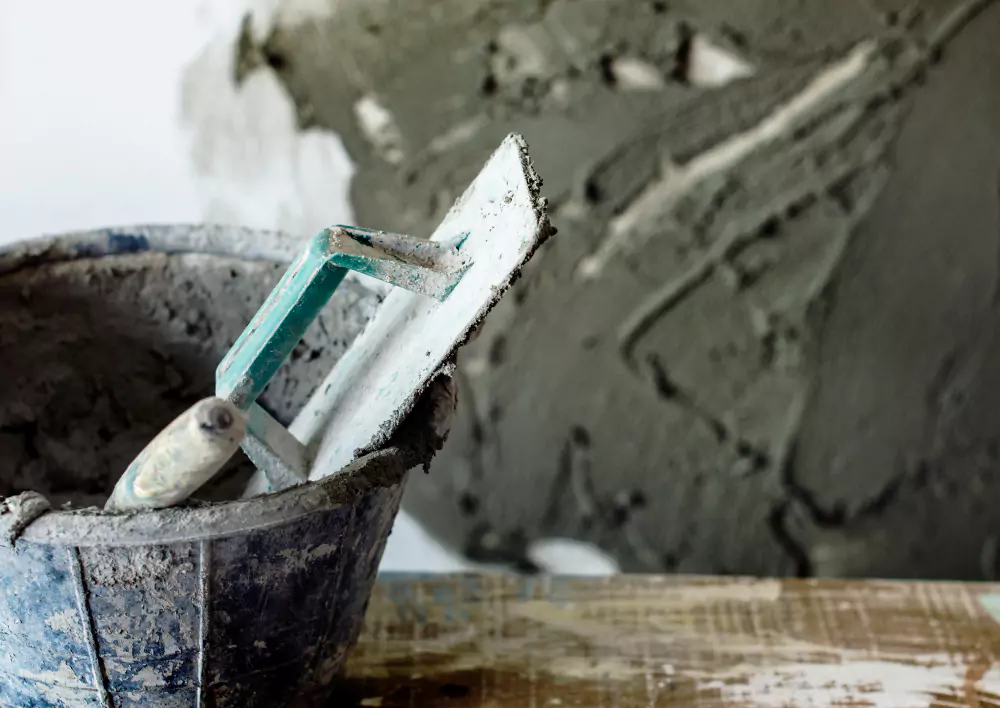
1. Ordinary Portland Cement (OPC)
Ordinary Portland Cement (OPC) is the most commonly used cement for home construction in India due to its high strength, quick setting time and versatility. It is available in three grades, each catering to different construction needs:
- OPC 33 Grade: This grade is used for low strength structures like pavements, plastering and non load bearing walls. It is suitable for general purpose applications where high strength is not a primary requirement.
- OPC 43 Grade: This is the most commonly used grade for residential buildings including foundations, walls, floors and plastering. It provides adequate strength for typical home construction and is widely available at competitive prices.
- OPC 53 Grade: This grade is designed for high strength applications like reinforced cement concrete (RCC) structures. It is used for heavy duty construction like bridges, flyovers and high rise buildings as it offers superior durability and strength. OPC 53 Grade is very useful in projects which require long term durability under high stress conditions.
OPC is easy to use and fast setting, hence it is an efficient choice for general construction. However it can crack in certain environments due to rapid hydration which can generate high heat.
2. Portland Pozzolana Cement (PPC)
Portland Pozzolana Cement (PPC) is known for its durability and resistance to chemical attacks, making it a more durable choice for construction in challenging environmental conditions. PPC is manufactured by blending Ordinary Portland Cement with pozzolanic materials like fly ash which not only improves the cement properties but also makes it more eco friendly and cost effective.
- Cost effective: PPC is often less expensive than OPC as it uses industrial waste, hence it is an affordable yet durable choice for many construction projects, especially in areas with moderate construction demand.
- Durability: PPC has high resistance to chemical attacks, hence it is ideal for construction in areas with high risk of moisture and chemicals in soil or water like coastal regions or industrial zones. It is particularly suitable for foundations, pavements and underground structures where exposure to water and moisture is common.
- Eco friendliness: Since PPC uses fly ash, a by product of power plants, it reduces industrial waste and lowers the carbon footprint of construction projects. Hence PPC is a sustainable and environment conscious choice for building materials.
3. Portland Slag Cement (PSC)
Portland Slag Cement (PSC) is made by mixing Ordinary Portland Cement with granulated blast furnace slag, a byproduct of steel production. This type of cement has better strength and durability especially in areas with harsh weather. The addition of slag improves workability and long term performance of the cement and makes it resistant to chemical attacks and corrosion.
- Strength and Durability: Slag content enhances long term strength and durability of concrete, makes it resistant to cracking over time. This is good for areas where concrete structures are exposed to extreme weather conditions like temperature fluctuations and harsh weather.
- Reduced Risk of Cracking: Slag component reduces heat of hydration during curing process which in turn reduces thermal cracking in large concrete structures. This is perfect for large scale infrastructure projects or areas with extreme temperature fluctuations.
- Environmentally Friendly: Like PPC, PSC is also eco-friendly as it uses industrial byproducts (slag) instead of raw materials, reduces demand for natural resources and lowers environmental impact of construction.
4. White Cement
White cement is a high quality cement made from raw materials that are iron oxide free, that’s why it’s white in color. It’s not usually used for structural applications due to lower tensile strength compared to OPC, but white cement is perfect for aesthetic purposes where appearance is the priority.
- Aesthetic Applications: White cement is used for interior and exterior decorative work. It’s perfect for smooth finish on walls, floors and ceilings. It’s also used for tile grouting, precast concrete products and decorative elements like sculptures, artistic wall finishes and architectural facades.
- Decorative Concrete: White cement is also used in making white concrete which is popular for projects that requires light colored surface like pool decks, decorative landscaping and custom designed concrete elements.
5. Sulphate Resistant Cement (SRC)
Sulphate Resistant Cement (SRC) is designed to resist the effects of sulphates in soil, water or other chemical environments. Sulphates can react with the calcium hydroxide in cement and cause expansion, cracking and deterioration over time. SRC minimizes these effects so structures exposed to sulphate rich environments remain stable and durable.
- Sulphate Resistance: SRC is ideal for construction in areas with high sulphate content in the soil or water such as coastal areas or high water tables. It is used in foundations, basements and underground structures where concrete is exposed to groundwater or aggressive soils with high sulphate content.
- Durability in Harsh Environments: This type of cement is suitable for marine construction, sewage systems and water treatment plants where concrete is exposed to water or chemicals. The sulphate resistance extends the life of structures in such environments and reduces maintenance and repair costs.
- Preventing Structural Deterioration: By preventing sulphate induced expansion and cracking SRC ensures concrete maintains its strength and integrity over time even in harsh conditions.
Top Cement Brands in India for House Construction
Choosing the right cement brand is very important for building a strong and long-lasting home. India has many reputed cement companies known for their cement for house construction. Here are the top brands offering reliable and durable cement:
1. UltraTech Cement
UltraTech is India’s largest cement manufacturer and the preferred choice for house construction. With its high compressive strength and durability, UltraTech OPC and PPC cement is used in residential and commercial projects.
2. ACC Cement
One of the oldest cement brands in India, ACC is known for its consistent quality and long-lasting strength. ACC Gold and ACC Suraksha cement variants are designed for home construction.
3. Ambuja Cement
Ambuja Cement is famous for its high strength and water resistance. It is used in areas with high rainfall and moisture. Ambuja Plus is the best option for individual home builders.
4. Shree Cement
Shree Cement offers OPC and PPC cement, both known for early strength gain and smooth finish. It’s a budget friendly and reliable option for house construction in India.
5. Dalmia Cement
Dalmia Cement is popular for its low carbon and eco-friendly options. It has high durability and resistance to chemical attacks, making it perfect for home foundation and structures.
6. JK Cement
JK Cement is known for its high-grade white cement and premium grey cement. It’s used in structural work and decorative applications like flooring and wall finishes.
7. Jindal Panther Cement
Jindal Panther Cement is the top choice for reinforced concrete structures. It has high bonding strength and crack resistance, ensuring a long lasting home construction.
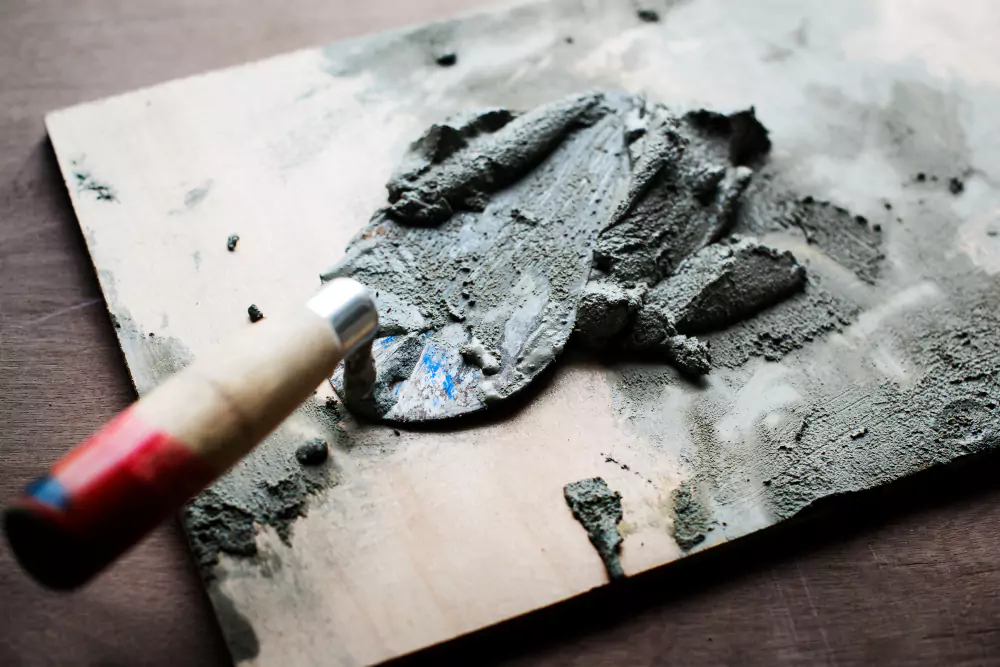
Factors to Consider When Choosing Cement for Your Home
Choosing the right cement for house construction in India is a critical decision that affects the strength, durability and longevity of your home. Here are the key points to consider when choosing the best cement:
1. Strength and Grade of Cement
Cement comes in different grades like OPC 33, OPC 43 and OPC 53 which indicates its strength.
- OPC 43 Grade: Suitable for plastering, masonry work and general construction.
- PPC and PSC: Great for areas with high moisture or coastal regions.
2. Climate and Weather Conditions
Local climate plays a major role in choosing the right cement:
- For hot and dry areas: OPC 43 or 53 Grade ensures high early strength.
- For humid or coastal regions: PPC or PSC offers better moisture resistance and prevents corrosion.
- For sulphate rich soil: Sulphate Resistant Cement (SRC) prevents damage to foundations.
3. Durability and Longevity
A strong home requires durable cement that can withstand wear and tear, weather changes and load pressure. PPC and PSC are known for their long lasting performance making them ideal for home construction.
4. Brand Reputation and Quality Certification
Always choose a reputed cement brand that follows BIS (Bureau of Indian Standards) certifications like IS 269, IS 1489 and IS 455. Top brands like UltraTech, ACC, Ambuja and Jindal Panther are good options for house construction in India.
5. Workability and Setting Time
Cement should have smooth texture for easy application and balanced setting time for proper construction:
- Fast setting cement is good for quick construction but may require expert handling.
- Moderate setting cement gives more time for proper finishing and adjustments.
6. Cost and Budget
While high quality cement may cost more, it saves future repair expenses. Compare different brands and cement types and find the best option within your budget without compromising on quality.
7. Resistance to Cracks and Shrinkage
PPC and PSC cement are good for home construction as it reduces cracks, shrinkage and thermal expansion.
Comparative Analysis of Cement Grades
Here’s what you need to know about cement grades when looking for best cement for house construction in India. Cement grades indicate their compressive strength which affects the durability and load bearing capacity of structure. Here’s a comparison of commonly used cement grades.
1. OPC 33 Grade Cement
- Strength: 33 MPa (after 28 days)
- Best For: Plastering, masonry work, small residential projects
- Pros: Smooth finish and cost effective
- Cons: Not suitable for heavy load structures due to low strength
2. OPC 43 Grade Cement
- Strength: 43 MPa (after 28 days)
- Best For: Wall construction, flooring, non-RCC structural work
- Pros: Better strength and durability than OPC 33
- Cons: Slower setting time than OPC 53
3. OPC 53 Grade Cement
- Strength: 53 MPa (after 28 days)
- Best For: RCC structures, beams, columns, bridges, high rise buildings
- Pros: High early strength, ideal for load bearing structures
- Cons: Requires proper curing to prevent shrinkage cracks
4. PPC (Portland Pozzolana Cement)
- Strength: Similar to OPC 43 but improves over time
- Best For: Residential homes, coastal areas, damp prone areas
- Pros: Higher durability, moisture resistance, crack prevention
- Cons: Slow strength gain than OPC 53
5. PSC (Portland Slag Cement)
- Strength: Similar to OPC 43 but better sulphate resistance
- Best For: Foundations, marine structures, underground construction
- Pros: Excellent corrosion resistance, ideal for long term durability
- Cons: Takes longer to set than OPC grades
Common Mistakes to Avoid When Selecting Cement
Choosing the best cement for house construction in India is a big decision that affects the strength and longevity of your home. Many homeowners and builders make mistakes that compromise construction quality. Here are the common mistakes to avoid:
1. Ignoring Cement Grade and Type
Not all cements are created equal. Using OPC 33 for load bearing structures or OPC 53 for plastering can lead to structural problems. Always choose the right cement grade for the application.
2. Selecting Low-Quality or Unbranded Cement
Some builders opt for cheap, unbranded cement to save money but this usually results in poor construction. Always buy cement from reputed brands like UltraTech, Ambuja, ACC and Jindal Panther and ensure they meet BIS certification standards.
3. Not checking the Manufacturing Date
Cement loses its strength and binding properties over time. Never use cement that is more than three months old, it may result to weak construction. Always check the manufacturing date before buying.
4. Ignoring Climate and Environmental Conditions
Different climates require different type of cement:
- PPC or PSC cement is better for coastal areas due to its moisture resistance.
- Sulphate resistant cement is ideal for areas with high sulphate content in soil. Choosing the wrong type can lead to early deterioration of your structure.
5. Improper Storage of Cement
Cement should be stored in dry and moisture free area. Exposure to humidity and water can cause cement to form lumps and reduce its effectiveness. Keep cement bags elevated and covered to maintain its quality.
6. Ignoring Cement Certification and Standards
Cement should always comply with ISI/BIS certification (IS 269, IS 1489, IS 455). Buying uncertified cement increases the risk of compromised construction quality.
7. Overlooking Workability and Setting Time
Different cements have different setting times:
- Fast setting cement is good for quick construction but requires skilled handling.
- Slow setting cement allows better finishing but may delay construction. Choose cement based on your construction timeline and expertise.
Cost is important but cheapest cement will lead to maintenance expenses later. Invest in good cement that will last long.
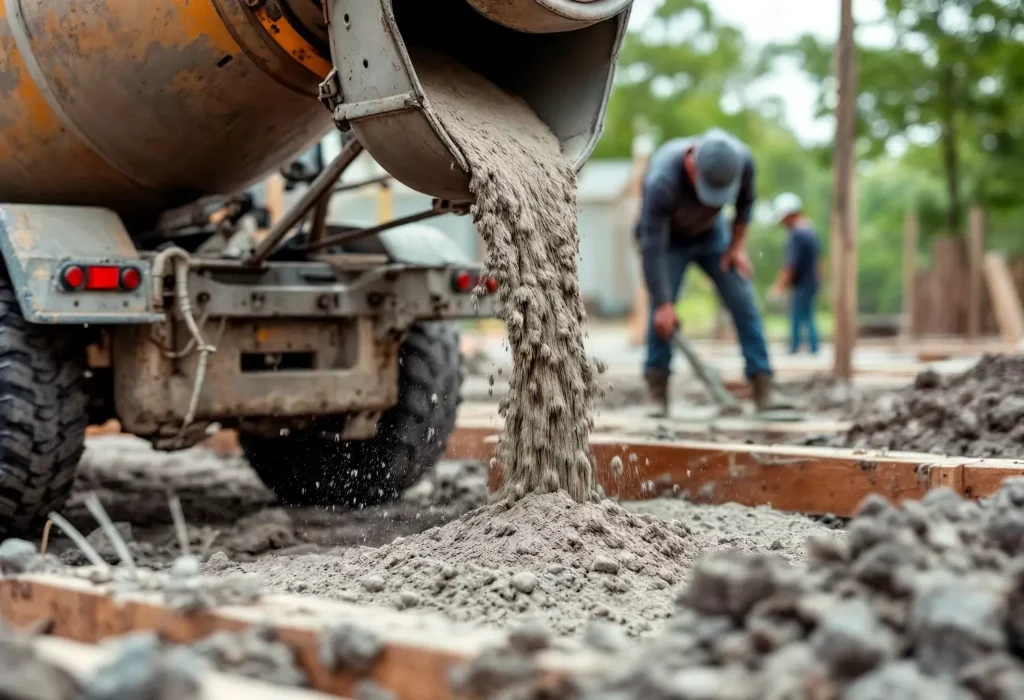
Also Read: Best Quality TMT Bars for House Construction: Guide
Build Stronger with SK Maurya Building Materials!
For best cement for house construction in India, contact SK Maurya Building Materials, an authorised dealer of Ambuja, ACC, Jindal Panther. With 45+ years of experience, we provide genuine, high strength cement at best prices. Whether foundation, walls or roofing, we ensure you get right cement for long lasting durability. Choose SKM for quality, trust and excellence in every bag!
Conclusion
Choosing best cement for house construction in India is very important for a strong, durable and long lasting home. By knowing different cement types, grades and top brands you can make an informed decision that enhances structural integrity. Never forget quality, certification, climate suitability and workability. Don’t make common mistakes of using expired or low quality cement and always buy from trusted dealers like SK Maurya Building Materials. A right cement ensures your home stands tall for generations, its a good investment in safety and durability.
FAQs
-
Which cement is best for house construction in India?
The best cement for house construction depends on the structure and location. OPC 53-grade cement is ideal for foundations and RCC work, while PPC cement is suitable for walls and plastering due to its durability and moisture resistance.
-
What is the difference between OPC and PPC cement?
OPC (Ordinary Portland Cement) is known for its high early strength and is best for load-bearing structures. PPC (Portland Pozzolana Cement) is more durable, offers better resistance to chemicals, and is preferred for general construction.
-
How do I choose the right cement grade for my home?
For house construction, OPC 53-grade cement is ideal for structural components like beams and slabs, while PPC or OPC 43 is better for plastering and masonry work. The choice depends on the strength requirement and construction type.
-
How can I check the quality of cement before buying?
Check for BIS certification (ISI mark), manufacturing date, smooth texture, and ensure the cement is free from lumps. Fresh cement should be cool to the touch and should not be older than three months from the date of manufacture.
-
Where can I buy the best quality cement in Varanasi?
For the best quality cement at competitive prices, visit SK Maurya Building Materials, an authorized dealer of top brands like Ambuja, ACC, and Jindal Panther. Located in Ramnagar, Varanasi, they provide genuine, high-strength cement for all your construction needs.


